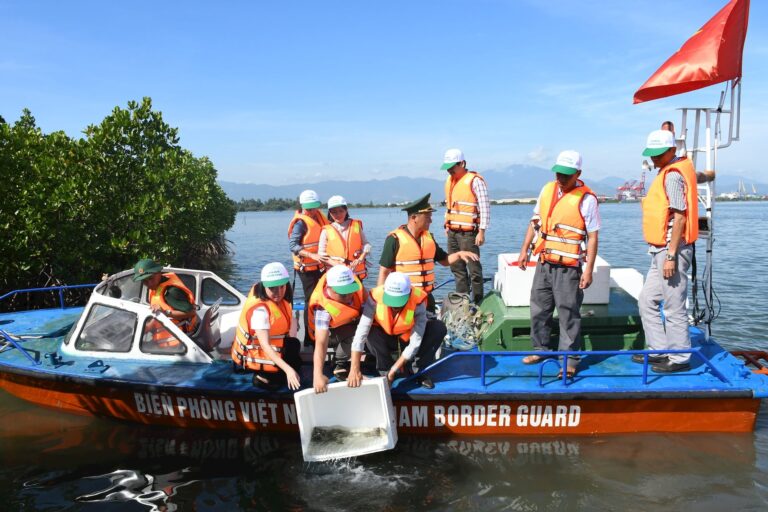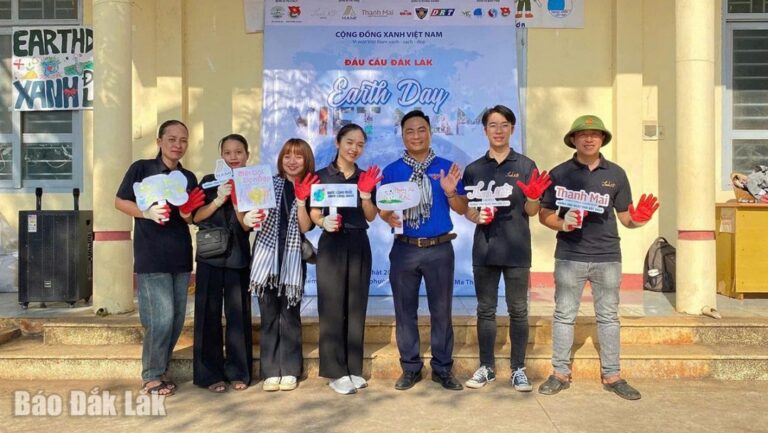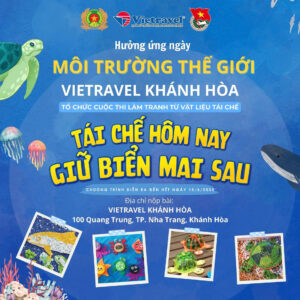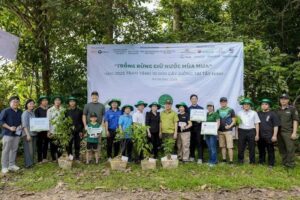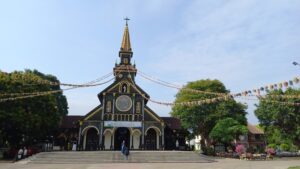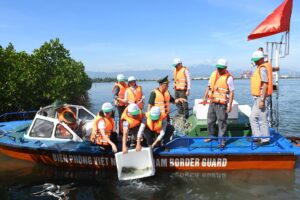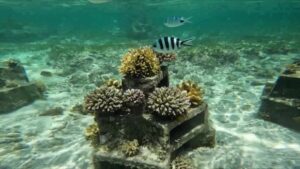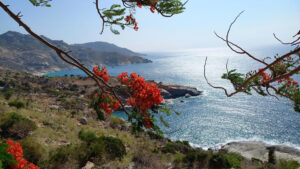A project aimed at promoting sustainable sand management in the Mekong Delta, implemented by the World Wide Fund for Nature (WWF) – Vietnam, has helped to mitigate the negative impact of climate change on the region.
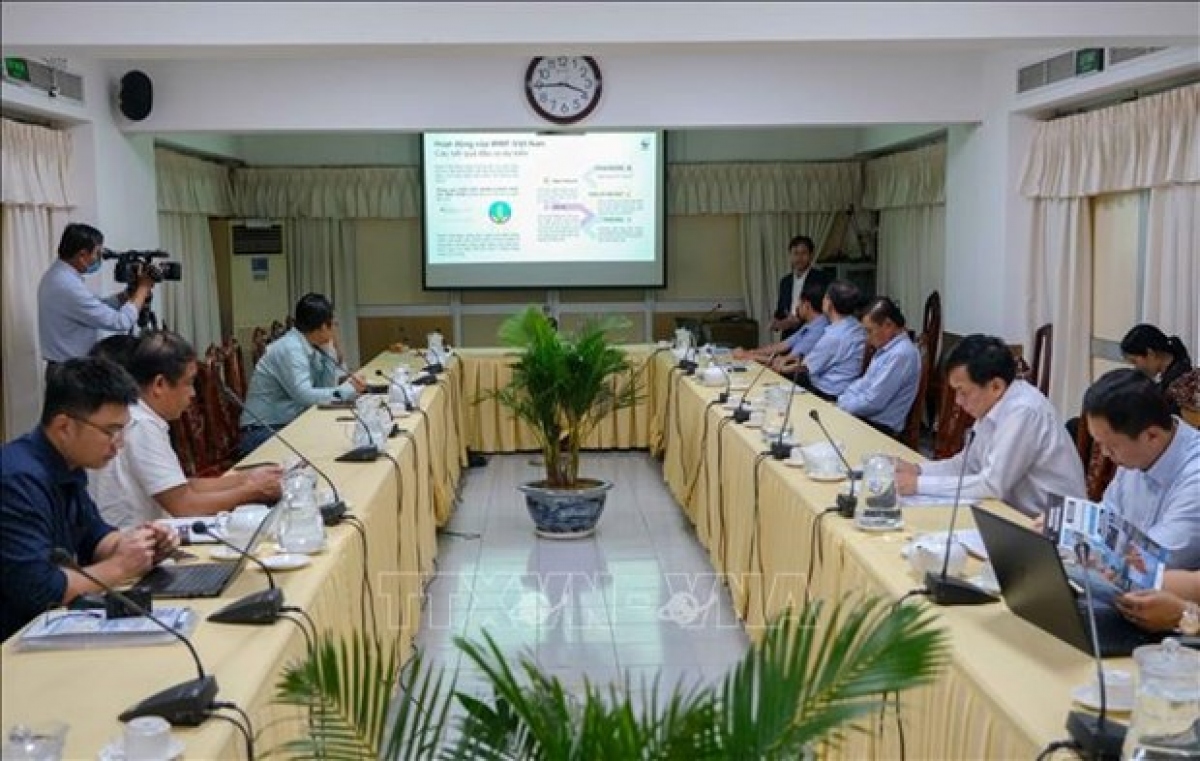
At the working session between representatives from the Southern Institute of Water Resources Research, WWF Vietnam, and People’s Committee of Can Tho city (Photo: VNA)
This information was released during a working session held on October 5 between representatives from the Southern Institute of Water Resources Research (SIWRR), WWF Vietnam, and the People’s Committee of Can Tho.
Nguyen Nghia Hung, deputy director of the SIWRR, said riverbed sand is an essential resource for socio-economic development needs. Indeed, in the Mekong Delta it is much exploited and used as construction materials and in leveling.
However, sand mining in the region is currently facing several challenges such as a decrease in the annual amount of sand due to the impact of upstream dam construction, climate change, overexploitation causing ecological imbalance, and river geomorphological instability. This is along with uncontrolled downstream landslides, erosion, and sedimentation, Hung noted.
According to details given by WFF-Vietnam, recent years has seen the resilience of the Delta heavily impacted by human activities, including upstream hydropower dams and sand mining in its main and distributary channels. Between 2018 and 2020, sand mining within the Mekong Delta’s channels was reported at 17.77 Mt per year, far more than the 6.18 Mt flowing into the Delta each year.
As a result of this unsustainable activity, the Mekong's riverbanks and coastal zones have been eroding, causing half a million people to be placed at risk of losing their homes. There has also been a reduction in the diversity and abundance of fish in mined areas, as well as changes to riverside vegetation. In line with this, climate change worsens the effects of unsustainable sand mining on the Delta with increased droughts, heavier rains, and unprecedented sea-level rises.
Put into action back in 2019 and set to end in 2023, the ultimate goal of the project is to contribute to maintaining key ecological functions and reducing socio-economic vulnerability of climate change in the Mekong Delta.
The scheme therefore aims to establish a delta-wide sand budget to create a better understanding of the scope and impact of unsustainable extraction rates.
Furthermore, it also intends to work alongside key players in the public and private sectors to develop and propose better policies and practices, such as the River Geomorphological Stability Plan in relation to sustainable sand and stone mining. In addition, it will make use of public outreach to raise awareness of the need for action to counter the various impacts of unsustainable sediment exploitation in the Delta.
Moreover, the project is expected to promote participation and dialogues among key players in the Vietnamese construction sector, whom it provides with information on the risks associated with sand mining and various opportunities for sustainable alternative sourcing to river sand and stone.


